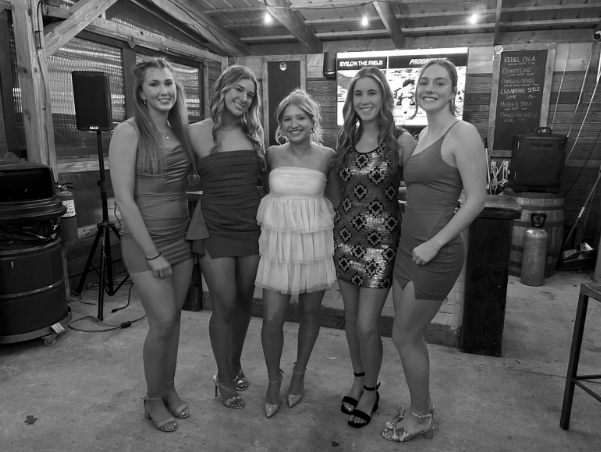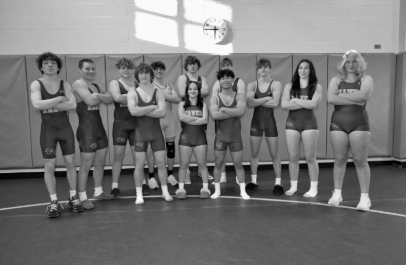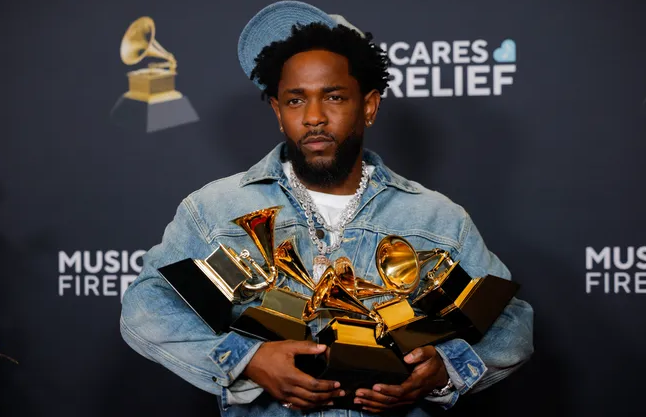Making poor nutritional choices creates unstable
Relationships with food
September 28, 2021
“As many as 30 million people in America will struggle with an eating disorder,” claims Integris Health, with “20 million” being female, and “10 million being male.” Despite these odds John Hopkins declared, “there are ways to incorporate healthy meals into your life.”
Junior Stephanie Erisman says that she, “wouldn’t say [she has] many food habits [,] but has always eaten a snack right after school.”
According to Erisman, the biggest influence on her eating is, “weight.” She says that if she “weighs [herself] and [is] not happy with the result [,] she [would start] skipping meals here and there and generally start eating less.”
Junior Julia Eakes, states that some of her personal dining habits are that she doesn’t, “eat unless [she is] physically feeling hungry.” She explains that this does not happen, “often because [she has] conditioned [her] body to not feel hungry.” Eakes adds that scheduled meal times also assist her in eating more consistently.
Eakes says that the heaviest influences on her food habits are, “other stressors in [her] life and activities by the day.” According to the junior, if she is, “more stressed or busy, [she’ll] forget to eat or put it off until [she thinks] it’s too late.” Body image issues are, “also a big influence” on Eakes’s dining habits. When she is feeling more self-conscious, she doesn’t consume as much.
In terms of diet, Eakes says that some days are, “stricter than others[.]” She explains that she is, “much stricter with [herself] in terms of dieting on days where [she] has dance practice.”
Erisman claims that she is, “relatively strict with what [she] eats at times.” She explains that this is “mainly because [she does] quite a few sports [,]” so she must occasionally watch what she consumes.
Eakes believes having a good relationship with food is, “so important.” She explains that through experience, she has discovered that disordered eating, “affects other aspects of [her] mental health.” She adds that “taking care of your body is super important [,] and it takes effort sometimes, but it’s worth it to be healthy and content with yourself.
Eakes states that she “must remind [herself] that [her] body doesn’t change from one meal [,]” as well as that she is, “constantly burning calories just by existing and [completing] daily exercise.” This helps Eakes to, “be more comfortable with food, but it’s [still] a very real struggle that [she] face[s] every day.”
Erisman says that she never finds herself “look[ing] at the calories in food but will look at the sugar content occasionally.” Eakes adds that she too doesn’t tend to count calories but, “sometimes obsess[es] about the value of what [she has and hasn’t] eaten a lot of.”
Erisman suggests that if someone is looking to break bad dining habits, “they should talk to a professional.” She believes that people who specialize in dietary needs, “know what they are doing, and they can look at things more objectively than you can.”
Eakes states that, “breaking bad eating habits takes a lot of time and effort.” She adds that “being conscious of bad eating habits and working to change them is a work in progress.” The junior wants to emphasize to those struggling that, “recovery isn’t a straight line of results, things will vary by the day.”
According to Eakes, people who find their food habits to be poor should “reach out to friends and family,” because, “admitting you need help is hard but so many people want to help and are there for you.” She encourages people to plan mealtimes and buy food that is “healthy and tastes good,” so dining grows easier.
















